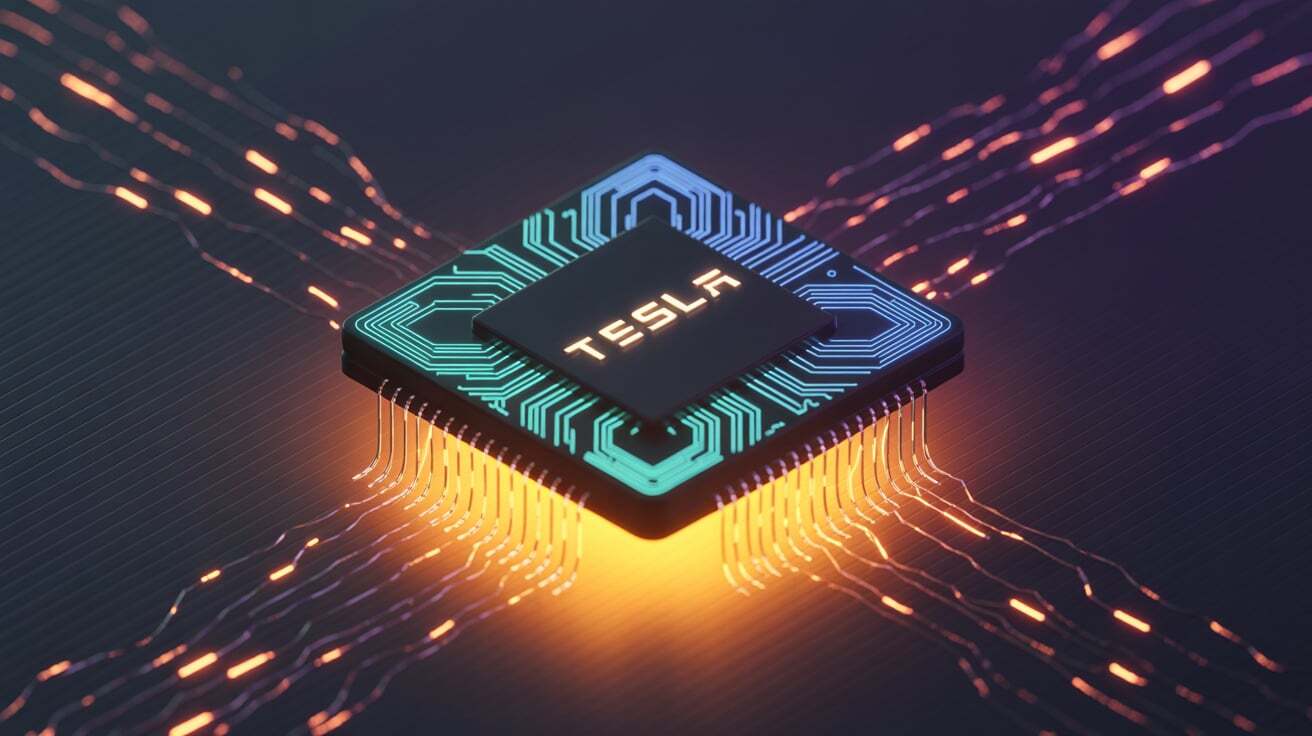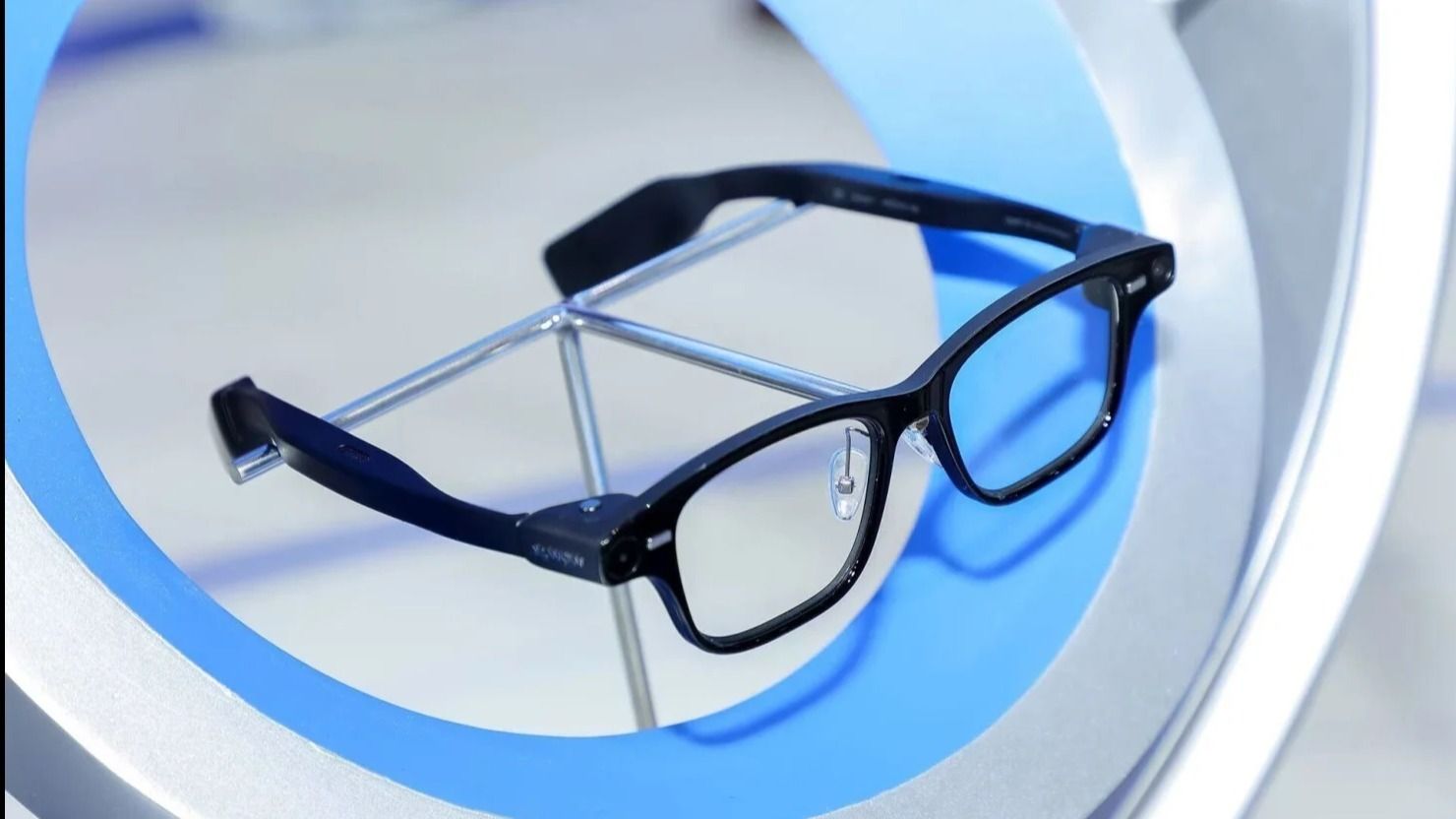- The Rundown Tech
- Posts
- Tesla's $16.5B AI chip bet
Tesla's $16.5B AI chip bet
PLUS: Universal, shelf-stable artificial blood
Good morning, tech enthusiasts. Tesla just inked a massive $16.5B deal with Samsung to produce next-gen AI chips in Texas, destined for its EVs, robotaxis, and humanoids.
With Elon Musk reportedly in “full founder” mode, pushing for tighter control over the chipmaking process, will home-grown silicon give Tesla a lasting edge, or just stretch its resources too thin?
In today’s tech rundown:
Tesla signs $16.5B AI chip deal
Scientists create shelf-stable artificial blood
Tea dating app breach gets bigger
Alibaba unveils its own smart glasses
Quick hits on other major tech news
LATEST DEVELOPMENTS
TESLA/SAMSUNG

Image source: Ideogram/The Rundown
The Rundown: Tesla just inked a $16.5B deal with Samsung for a state-of-the-art fab in Taylor, Texas, dedicated to exclusively producing Tesla’s next-gen AI6 processors to power its self-driving vehicles, Optimus robots, and AI.
The details:
The AI6 chips are being designed to unify hardware platforms, from robots to robotaxis, to support Tesla’s vision for vertically integrated AI infrastructure.
For Samsung, hit hard by client losses to TSMC and struggling with billions in foundry losses, the Tesla deal pushes them back in the lead pack.
Elon Musk has said he’ll personally walk the production lines to accelerate Samsung’s notoriously sluggish foundry.
He added that the $16.5B figure is just “the bare minimum” — the real output, and thus ambitions, are “likely to be several times higher.”
Why it matters: The deal is a huge boost for Samsung’s struggling foundry division and gives Tesla powerful logistical advantages by placing chip production close to its Texas operations. It also highlights how custom in-house silicon is becoming the next big thing, as the U.S. ramps up domestic chipmaking under the Chips and Science Act.
TOGETHER WITH GUIDDE
The Rundown: Stop wasting time on repetitive explanations. Guidde’s AI helps you create stunning video guides in seconds, 11x faster.
Use Guidde to:
Auto-generate step-by-step video guides with visuals, voiceovers, and a CTA
Turn boring docs into visual masterpieces
Save hours with AI-powered automation
Share or embed your guide anywhere
BIOTECH INNOVATIONS

Image source: Ideogram/The Rundown
The Rundown: Scientists at the University of Maryland have developed powdered artificial blood that can be easily stored, transported, and quickly mixed with water for use in life-saving emergencies.
The details:
The artificial blood has been developed as a powder that can be stored for long periods without refrigeration and reconstituted with sterile water on demand.
Medics, soldiers, or first responders can quickly mix and administer the blood substitute, enabling treatment for severe hemorrhage minutes after injury.
The product is designed to be universal, meaning it doesn’t require blood type matching, eliminating compatibility concerns.
Researchers are now working through animal studies, safety trials, and regulatory hurdles ahead of potential human testing.
Why it matters: So far, it’s been tested in a dedicated rabbit “ICU,” successfully using it to resuscitate animals in controlled tests. While human testing awaits, its compact form means it could be stored in ambulances, helicopters, or rural clinics — places where traditional blood kits usually can’t go, drastically reducing deaths from bleeding.
TEA

Image source: Tea
The Rundown: Tea, a fast-growing women-only dating advice app, reportedly confirmed that last week’s data breach is bigger than thought, with hackers accessing some 72K images and posting large troves of them on 4chan.
The details:
Tea lets women anonymously review men, share warnings with one another, and run background checks, branding itself as a safer way to date online.
Hackers accessed some 13K selfies and government ID photos, required for account verification, and 59K images from posts and comments.
The breach has caused alarm because of the highly sensitive nature of the compromised material, including private discussions and direct messages.
Cybersecurity experts have criticized the app’s reliance on a legacy storage system, which had not been properly migrated to a more secure infrastructure.
Why it matters: Tea has shut down compromised systems, brought in outside cybersecurity experts, and claims to have tightened security. The company is offering free identity protection to affected users and working to prevent future breaches, but the whole debacle reignites concerns over privacy and the rapid scale of social apps.
ALIBABA

Image source: Alibaba
The Rundown: Alibaba unveiled its first smart glasses, the Quark AI Glasses. Set to launch in China by the end of 2025, the device looks to be a direct challenge to rivals like Meta in the growing AI wearables race.
The details:
Powered by Alibaba’s in-house Qwen large language models and the Quark AI assistant, the glasses deliver real-time translation and voice-based controls.
Users can make calls, stream music, access navigation, transcribe meetings, and handle digital payments via voice interaction and simple gestures.
The glasses are deeply linked to Alibaba services, including Amap for navigation, Taobao for online shopping, and Alipay for payments.
They feature dual chipsets (Qualcomm AR1 and BES2800) for always-on intelligence and extended battery life, with a built-in camera.
Why it matters: In contrast to Western rivals, Alibaba is positioning Quark AI Glasses less as a cool, fashion-forward device and more as a cutting-edge way to boost real-world productivity, built off the backbone of Alibaba’s sprawling digital ecosystem. Yet one key detail is still missing: the price.
QUICK HITS
📰 Everything else in tech today
Apple is closing its first-ever retail store in China — a location in Dalian — marking a significant event for the company in a key international market.
Meta will halt all political, electoral, and social issue ads across the EU, citing the EU’s new Transparency and Targeting of Political Advertising law as “unworkable.”
A class-action lawsuit alleges Anthropic used millions of pirated books to train its AI models, potentially exposing the company to billions of dollars in copyright damages.
Scientists achieved a record-low quantum computing error rate of 0.000015%, marking a major milestone toward practical, utility-scale quantum computers.
PayPal introduced “Pay with Crypto,” a new checkout option that will let U.S. merchants accept more than 100 digital assets, including Bitcoin and Ether.
Scientists created an automated, virus-inspired platform that rapidly evolves proteins in mammalian cells, opening new possibilities for precise gene editing.
Lyft will introduce autonomous, steering wheel–free electric shuttles made by Benteler’s Holon brand in late 2026.
AI startup Anthropic is in early talks with investors to raise between $3B and $5B at a potential valuation of $150B.
COMMUNITY
Join our next workshop this Friday, August 1st, at 4 PM EST with Dr. Alvaro Cintas, The Rundown’s AI professor. By the end of this workshop, you’ll have practical strategies to get the AI to do exactly what you want.
RSVP here. Not a member? Join The Rundown University on a 14-day free trial.
That's it for today's tech rundown!We'd love to hear your feedback on today's newsletter so we can continue to improve The Rundown experience for you. |
See you soon,
Rowan, Jennifer, and Joey—The Rundown’s editorial team



Reply